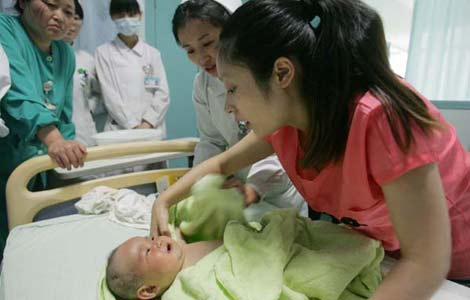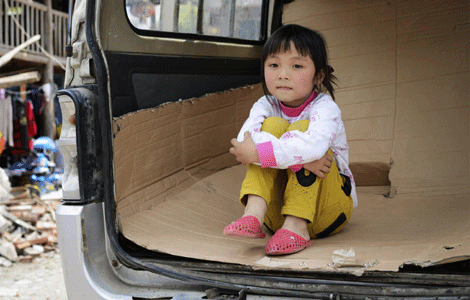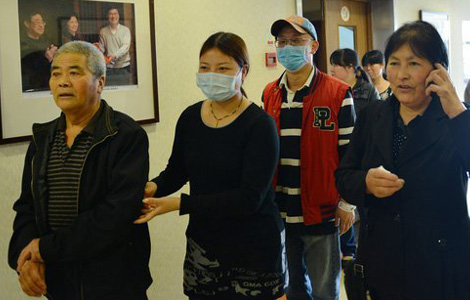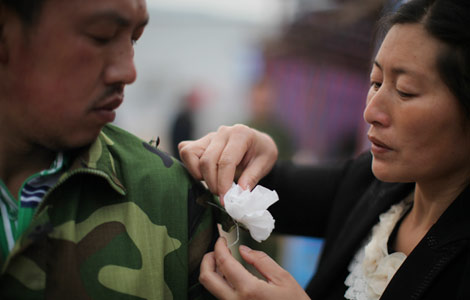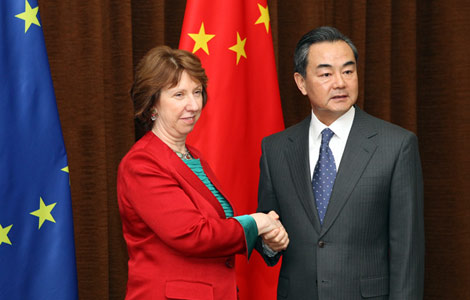Chinese NGOs reach out to African countries
Updated: 2013-04-29 08:28
By Meng Jing and Sun Yuanqing (China Daily)
|
||||||||
Strong government support is another major driver. President Xi Jinping has in his keynote address to the 2nd China-Africa People's Forum indicated that a new type of China-Africa strategic partnership is being promoted, in which cultural and people-to-people exchanges are the key.
Li from the friendship association said there is a growing emphasis from the Chinese government on people-to-people exchanges being the foundation for strong China-Africa ties.
"China-Africa cooperation is mainly on the government-to-government level. To further develop strong ties with Africa, it is important to make more African people know and understand China," Li said.
You Jianhua, secretary-general of China NGO Network for International Exchanges and the organizer of the People's Forum, said unlike many other countries, the relationship between the Chinese government and NGOs is friendly.
"With strong government support, going to Africa is now recognized as the first step for Chinese NGOs to go abroad," said You, who recently organized a team of Chinese NGOs to build water wells in Africa.
"We can tell the trend from the increasing number of NGOs who took part in China-Africa People's Forum," he said. The forum, held alongside the ministerial conference of FOCAC since 2012, attracted around 300 delegates from NGOs in China and Africa last year.
"Not all the NGOs in China are ready to go abroad, but I think the top ones, which have the ambition to grow themselves into international organizations, are ready to step onto foreign shores," said Tu Meng, secretary-general of China Youth Development Foundation.
He added that being international doesn't necessarily mean extending financial assistance to other countries but also means in having operational and long-term projects in these nations along with representative offices.
Since March 2011, nearly $3.5 million raised by WECBA has gone toward the construction of 17 schools in Tanzania, Kenya and Burundi. Thousands of African children in these low-income countries have benefited immensely from the project.
Yan Shi, deputy director of the department of Project Hope for Africa with CYDF, said the demand for help in Africa is quite strong.
"Many of the rural schools we visited in Africa are made of mud and animal dung. There is even one school in Kenya, which has no walls at all, and is just a blackboard under a tree with some stones on the ground for children to sit on," he said.
Yan, who worked for Project Hope China between 2008 and 2011, a program that has built around 17,900 schools in China since 1989, said in terms of help, the landscape in China and poor countries in Africa is quite different. "Project Hope in China has increasingly involved constructing schools to equipping schools with computers and other facilities, including training rural teachers, while the demand in Africa is still at the stage of school construction," Yan said.
Academics and insiders in NGOs said that China has progressed rapidly to something that is in between a developed economy and a developing economy, which means Chinese NGOs are in a better position to help, and the experiences they gather in their operation in China suit African situation better than their Western counterparts.
Karla Simon, a law professor at the Columbus School of Law, Catholic University of America, and an expert in civil society of China, said Chinese NGOs are closer in terms of their development to African NGOs, compared with Western NGOs.
"The civil society movement in China is really quite young. Nobody had heard of the term NGO until 1995 in China. But I think Chinese NGOs have a lot to bring to Africa as they are relatively recent," the Washington DC-based Simon said.
He Wen, director of project management center with the Amity Foundation, agreed, saying compared with NGOs from Western countries, it is easier for Chinese NGOs to fit their skills into African society because poverty alleviation is a much more recent event than in the West.
Since 2011, He's Nanjing-based foundation has trained dozens of people from Madagascar the skills of building biogas digesters and provided the country with 263 units of equipment for the building of biogas digesters in rural areas.
"A biogas digester, a practical equipment that turns organic waste into usable fuel, is very popular in rural China. We can take more useful technologies from rural China to meet demand in Africa. Western countries are quite developed and many of their skills may not fit into the African context quite well," he said.
Most Viewed
Editor's Picks

|

|

|

|

|

|
Today's Top News
Abe defends shrine visits
Premier Li: 'High alert' to remain on bird flu
China to enhance ties with Argentina
Technology fair eyes innovation
'Wang-Koo meeting' anniversary marked in Taipei
China joins rush for Mars
A camper's life traveling the open road
Draft amendment stresses consumer rights
US Weekly

|

|

